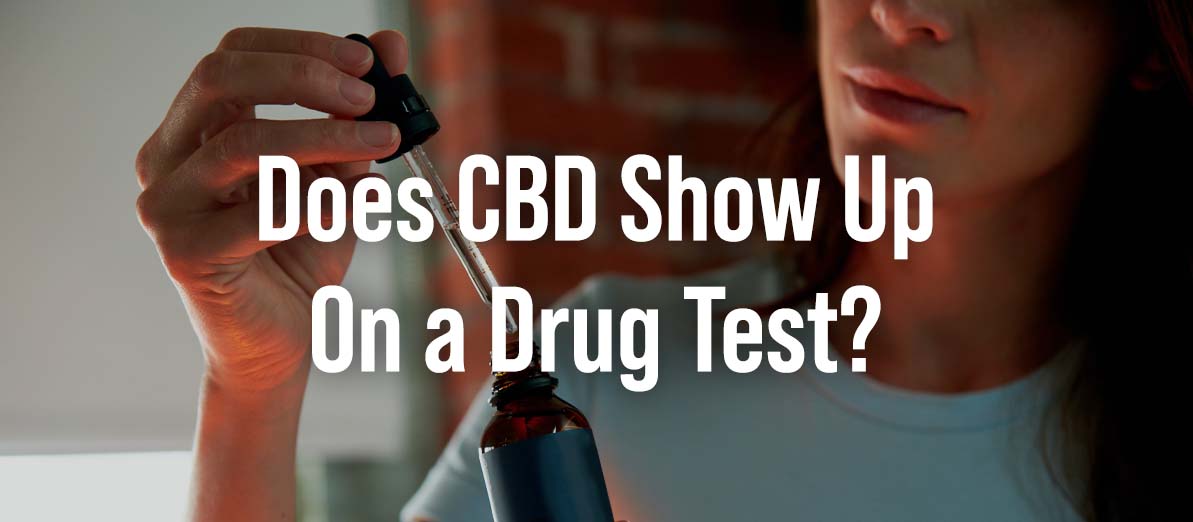CBD was popularized back in 2018, but many people still aren’t sure whether or not it’ll show up on a drug test. In this article, we’ll explore the world of cannabinoids and the question at hand; Will CBD show up on a drug test?
Hemp extracts are commonly referred to as CBD. While the majority of hemp extracts do contain CBD, it is just one of many cannabinoids present. CBD is completely non-psychoactive and the majority of drug tests aren’t looking for it specifically.
So why do people worry about CBD or hemp extracts causing them to fail a drug test? In this article we’ll dive in head first and explore the topic in detail. We’ll discuss what cannabinoids are, why some hemp extracts could cause you to falsely test positive on a drug test, and even give you some pointers on which extracts are preferred by those who are subject to regular drug tests.
What is CBD?
CBD (cannabidiol) is one of 113 known cannabinoids that exist in the hemp plant. Cannabinoids are present in all species of cannabis. Though there are a variety of different strains of cannabis, there are only three species; Cannabis Sativa (Hemp), Cannabis Indica (Marijuana) and Cannabis Ruderalis (a subspecies of cannabis sativa).
Each of these species of cannabis contain a wealth of cannabinoids. Scientists have discovered 113 and believe that there are more that have yet to be recognized. Though cannabinoids are present in each of these species, they exist in very different concentrations. Some plants have a very high concentration of particular cannabinoids like THC, and others are especially rich in CBD.
What Are Cannabinoids?
We’re all familiar with the term “CBD”, and now you’re aware that CBD is a cannabinoid, but what is a cannabinoid? Cannabinoids are powerful compounds that exist in all species of cannabis.
There are 113 known cannabinoids and each of them has a unique effect on the body. CBD, CBN, and THC are all commonly known cannabinoids that have distinctly different effects. Many people are familiar with the effects of THC, and some still wrongfully associate it with CBD. These are arguably the most famous of the cannabinoids, but provide very different experiences for the user.
CBD vs. THC
Drug testing hasn’t been able to keep up with CBDs boom in popularity. Scientists have yet to develop drug tests that are able to distinguish between hemp and marijuana use. This is due to the presence of THC.
THC is the psychoactive compound present in marijuana that is notorious for making users feel “high”. Though CBD has been legal for years and is widely used for health and wellness, some people still get the two confused. And so do drug tests. Drug tests check for the presence of THC. They do not distinguish between different types of cannabinoids. This means that if you’re using a product with even a minuscule amount of THC, it is possible that you could falsely test positive for marijuana use.
The Difference Between Marijuana and Hemp
Marijuana and Hemp are both species of cannabis but have very different chemical composition and affect people in distinctly different ways. Back in the 1960s, marijuana was popularized due to its psychedelic effects and medicinal potential.** Now millions of Americans utilize it.
Hemp is not at all psychoactive. In fact, industrial hemp is legally required to contain 0.3% THC or less. This renders the plant completely non-psychoactive. One of the reasons people love CBD so much is because it allows them to enjoy the benefits of cannabinoids without dealing with any pesky side effects.
The Best Options For Those Subject to Drug Tests
The minuscule amount of THC contained in some CBD products is not nearly enough to elicit any psychoactive reaction, but it is enough to cause some issues with drug tests. Countless Americans are still subject to regular work-related drug tests. This means that CBD users need to be aware of the spectrum-type they use and what cannabinoids are included.
Let’s take a quick look at each of the spectrum-types. This will give you a clear understanding of the most prominent cannabinoids they contain and will also provide you some insight into which might be the best option for you.
Full Spectrum CBD
This spectrum contains the full range of cannabinoids. CBD, CBN, CBG can be found in full-spectrum extracts. They also contain trace amounts of THC. Because they are legally required to contain 0.3% THC or less, you don’t have to worry about getting high. The inclusion of THC in this spectrum means it’s not the best option for those who have to take drug tests.
Broad Spectrum CBD
Broad spectrum extracts contain a wealth of cannabinoids like full spectrum. It also contains the same valuable terpenes and amino acids. The major difference between these two is that broad spectrum CBD doesn’t contain any THC. This makes it a wonderful option for those who are subject to regular drug tests.
If you’re interested in treating yourself to some premium CBD,
Check out our complete selection of broad-spectrum products!



